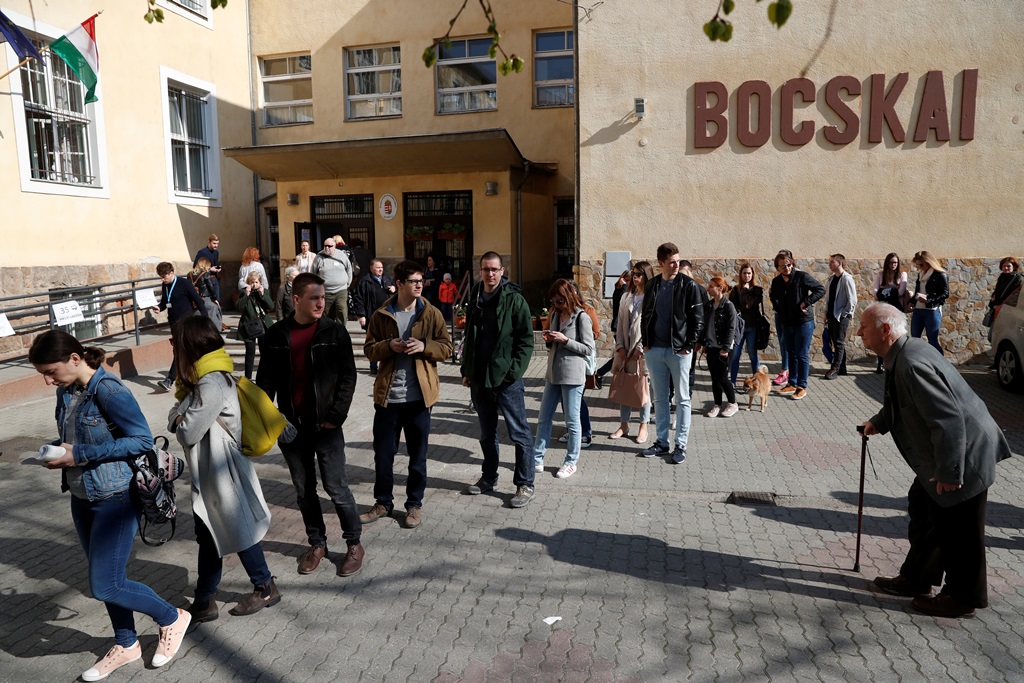Protests in Hungary: No Significant Consequences for the Government

On 12 December, the Hungarian parliament approved laws amending the country’s labour code and creating administrative courts. Voting on the laws took place despite the opposition’s attempt to physically block it. After adopting the changes, the opposition called for street protests. Protesters have demanded withdrawal of the changes in the labour laws, a reduction in the maximum amount of overtime for the police, as well as the restoration of an independent judiciary, joining the European Public Prosecutor’s Office—an EU body established in 2017 with 22 participating Member States—and the reconstruction of independent public media. The protests, though, are generally anti-government.
Content and Perception of the Laws
The changes to the labour code aim to address shortages in the workforce, which pose the greatest challenge to enterprises in Hungary. Minister of Foreign Affairs Péter Szijjártó drew attention to these problems by stating that German companies operating in Hungary have long been seeking additional employees. The amendment is intended to make the Hungarian market more attractive for these companies, which combined account for around 15% of the added value of industrial production in Hungary.
The amendment increases the overtime limit an employer may demand from a worker from 250 hours—or, in case of a collective agreement, from 300 hours—to 400 hours annually. At the same time, it extends the payment period for overtime hours from 12 to 36 months. The government argues that workers’ councils and trade unions will protect the interests of workers who refuse to work overtime. According to opinion polls, more than 80% of Hungarians do not support this amendment. Most employee organisations are also against it. They point out that even before the adoption of the new labour law, some of the most frequent violations were related to working time.
The establishment of the administrative courts, which will start operating on 1 January 2020, may have more significant consequences for the political system. The significance is these courts may rule not only on administrative matters (taxes, immigration decisions, fines, etc.) but also on any other matters specified in the law. Also, the actual supervision of these courts will be exercised by the Minister of Justice. The minister will have the power to change the decisions of the National Council of Administrative Courts, which evaluates candidates for judges. He will also be able to decide on the appointment and promotion of the judges of administrative courts. This means that courts established to control the institutions of the executive will be overseen by a representative of the same executive.
The adoption of the laws has not resulted in a decrease in Fidesz’s support. The first surveys carried out after the vote show that it remains at around 35%. This can be explained, among other factors, by the large number of core voters of this party (around 1.7 million of about 8 million eligible voters), who are constantly mobilised by pro-government media and government campaigns, including on social media. In 2018, the government spent around HUF 50 billion on public communication (about €160 million). Polls show that Hungarians draw information on politics primarily from the television and only to a lesser extent from the internet and radio.
The Protests
For the first time, protests have led to broad mobilisation and the joint appearance of the parliamentary and extra-parliamentary opposition, trade unions, and non-governmental organisations. This is a change from earlier protests in which politicians rather discouraged people from participation. The opposition’s new strategy is based on undertaking joint actions that go beyond regular parliamentary work. For example, it attempted to block the work of parliament. Opposition MPs also exercised their right to enter the headquarters of the public television (MTVA), on which they appear only sporadically. They were, however, thrown out from the building by MTVA protection services, which raised concerns among some lawyers. Other legal issues have appeared in relation to the reaction of the police, which did not provide protection to the MPs despite their requests to do so. Between 12 December and 6 January, five demonstrations took place in Budapest, with the largest two having about 10,000 participants. Outside the capital, several smaller protests have been held. The large number of young people (18-25 years) among the protesters is a new phenomenon. Also, they are more prone to radical behaviour, for example, confrontations with the police, than in earlier protests.
The political parties expect trade unions to organise further actions to put more pressure on the government. The unions announced large demonstrations that included blocking roads on 19 January and preparations for a general strike if their demands were not met. They call for the withdrawal of the changes to the labour code, increasing salaries and pensions, and changes to the strike law.
Limited Opportunities to Put Pressure on the Government
Several factors probably mean the protests will be ineffective. First is their small scale. The ruling party has not been forced to react to the demonstrations by changing its policy because the demonstrations have not been super massive. There were even bigger ones against the Fidesz government in 2012 and 2013, under the banner “A million people for freedom of the Hungarian press,” and teachers’ protests in 2016. The only effective action so far was the protest against the internet tax in 2014, in which many tens of thousands of people participated.
The second limitation is in the law itself. The strike law of 2011 obliges public sector employees—who have the greatest potential for raising the political pressure—to agree with the government on the minimum level of service provided during a strike. In case of no compromise, the court rules whether a strike can take place. Thus, despite social pressure, local trade unions are interested in resolving their disputes through negotiations. Strikes are therefore not a decisive instrument for exerting pressure on the government.
The third barrier is the inevitable competition of opposition parties ahead of the EP elections. As the ruling party holds an advantage in resources (political, media, financial), the opposition would have to maintain its activity at a high level to maintain social resistance. However, it will be difficult for the opposition to preserve their unity, especially in the EP election campaign. So far, only Fidesz and the extra-parliamentary Momentum (whose support is at about 3%) have submitted their electoral lists. The chances are low that there will be a joint opposition electoral list, as only two parties, the Hungarian Socialist Party (MSZP) and Dialogue (Párbeszéd) support one. Their support combined is around 9%, while the support for all opposition parties is around 32%. The image of a politically effective opposition will be further weakened by the elections of a common opposition candidate for the mayor of Budapest at the autumn local elections. This will cause additional internal rivalry. At the same time, Fidesz will seek to discredit the opposition by resorting to the argument that financier George Soros is behind it to force immigration on Hungary.
Conclusions and Perspectives
The protests in Hungary appear to not threaten the authorities and the government is unlikely to withdraw the laws. The potential to increase the pressure on them is limited because of a lack of effective instruments among the opposition, trade unions, and NGOs.
The upcoming EP elections favour Fidesz because, through its media and political resources, it will attempt to distract the public’s attention from the protests and focus it on the elections. At the same time, it will emphasise a political breakdown of the opposition. Prime Minister Viktor Orbán’s priority is the election of as many Fidesz MEPs as possible, as his position in the European People’s Party in the next EP term will depend on this.
The labour code amendment once again shows that even unpopular measures that affect a large number of voters will mobilise only a small part of the Hungarian public. That is why only the next economic crisis, which would cause permanent dissatisfaction and social resistance, can be a real threat to the Fidesz-KDNP government. It is unlikely that before then the opposition will create a viable alternative to the government under the current political conditions.





